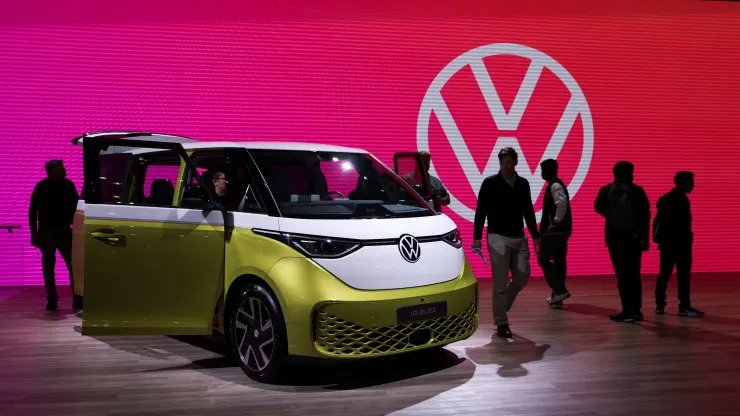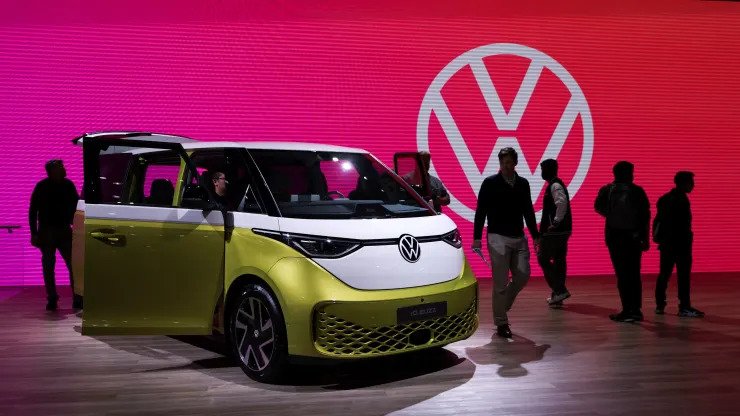Volkswagen on Tuesday announced plans to invest 180 billion euros ($192.6 billion) between 2023 and 2027, with more than two thirds targeting “electrification and digitalization.”
The German automotive giant earlier this month posted a full-year 2022 operating profit of 22.5 billion euros, up 13% from the previous year, with battery and electric vehicle (BEV) deliveries rising 26%.
The BEV expansion was driven by a 68% spike in China, while the company also completed the landmark electrification of its plant in Chattanooga, Tennessee.
However, overall delivery numbers declined by 7% to 8.3 million vehicles in 2022 and the automotive division’s net cash flows decreased to 4.8 billion euros from 8.6 billion euros in 2021.
In Tuesday’s annual report, the company attributed this to “an increase in working capital due to supply chain and logistics issues, especially towards the end of the year,” and projected this should “largely reverse” over the course of 2023.
CEO Oliver Blume said Volkswagen “set clear and ambitious targets and took necessary decisions to streamline processes” in 2022, while the coming year will be “decisive” for executing the group’s strategic aims.
Volkswagen Group CFO and COO Arno Antlitz said that the company’s strong financial position should enable it to “continue investing in electrification and digitalization” even in a “challenging economic environment.”
“We have interest rates increasing and the overall demand is slightly coming down from a customer perspective, from a market perspective, but on the other hand we are still operating in an environment, in an economy, that is characterized by [semiconductor] supply that is still not sufficient,” Antlitz told CNBC on Tuesday, adding that this global shortage of semiconductors is easing.
“Based on that, we have an order book which is almost 1.8 million cars. Based on our strong products, strong brands and that order book, we are rather confident for 2023.”
Net cash flow in the automotive division increased to 43 billion euros by the end of 2022, fueled by the successful IPO of luxury brand
Porsche, which
reported record earnings on Monday and issued an ambitious long-term outlook.





